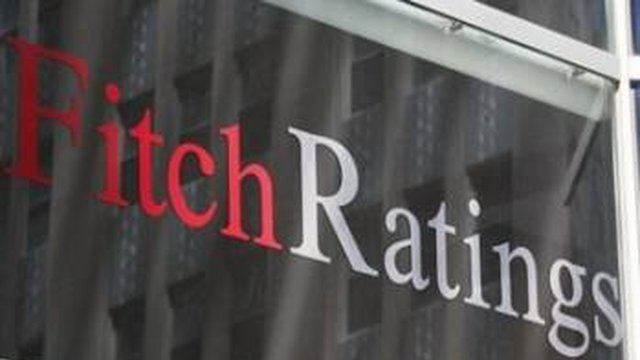Fitch affirms DTEK at 'RD'

Fitch Ratings has affirmed Ukraine-based DTEK Energy B.V.'s (DTEK) Long-Term Foreign-Currency (FC) and Local-Currency (LC) Issuer Default Ratings (IDRs) at 'RD' (Restricted Default), reads a report on the rating agency's website.
"The agency has also assigned DTEK's newly issued U.S. dollar eurobond a senior unsecured rating of 'C'. The Recovery Rating is 'RR4'," reads the posting.
"The affirmation of the IDR at 'RD' reflects the fact that DTEK is finalizing the restructuring of its bank loans. The company completed the restructuring of its eurobonds at the end of 2016. Upon completion of its bank debt restructuring DTEK's FC and LC IDRs and the senior unsecured rating for the eurobonds are likely to be upgraded to 'CCC' to reflect the company's post-restructuring capital structure and business risk," the agency said.
"Post-Restructuring IDR: We expect to upgrade DTEK's LT IDRs to 'CCC' from 'RD' upon completion of the restructuring of its bank loans, which is due by the end of March 2017. We assess the company's post-restructuring capital structure and high business risk to be commensurate with a 'CCC' rating. Currently, DTEK is at risk of disruptions in coal supply and the loss of its assets in Donetsk and Luhansk regions. We estimate this could result in a 40% drop in EBITDA in 2017," Fitch experts stated.
"Our analysis shows that DTEK's liquidity is just about sufficient for the next two years but that credit metrics will deteriorate if the loss of the operations in Donetsk and Luhansk regions materializes," they said.
"Post-Restructuring Maturities: the new eurobond issue for $1.275 million is split into two equally sized tranches due December 2023 and December 2024. The restructured bank debt will have small annual amortization payments. The company can repay the 2017-2018 amortization payments of $102.5 million (UAH 2.8 billion) from existing cash balances. The 2019-2022 annual principal repayments of $80 million (UAH 2.2 billion) are comfortable for the company. However, we expect the company to be reliant on external funding from 2019," the document reads.
"Adequate Liquidity: Fitch estimates, DTEK's liquidity at UAH 7.5 billon ($279 million) on January 28, 2017, which is comfortable to cover 2017-2018 maturities totaling UAH 2.8 billion and expected negative free cash flow of almost UAH 5 billion, assuming adverse political developments in eastern Ukraine (i.e. the loss of the operations in the areas of dispute)," the company said.
"Exposure to Political Instability: DTEK has a number of assets located in, or near to the parts of Donetsk and Luhansk regions, where there has been armed conflict - representing 29% of total assets and 21% of revenue as of the end of H1, 2016. Moreover, electricity production at two power plants which account for 17% of DTEK's electricity volumes (as of the end of 2016) may be suspended due to lack of coal supplies from non-controlled territories. Fitch estimates that around 20% of DTEK's revenue is at risk if the company loses its assets in the military area," the report states.
"We expect funds from operations (FFO) gross adjusted leverage to increase to above 10x over 2017-2020, from around 5x at end-2016 on the back of the expected deteriorating operational performance," the experts added.
"Adequate Recovery: upon completion of bank debt restructuring, the senior unsecured rating of the new $1.3 billion eurobond is likely to be upgraded to 'CCC' from 'C' in line with DTEK's expected post-restructuring FC IDR of 'CCC', reflecting average recovery prospects given default. The Eurobond was issued by DTEK Finance Plc (UK) and ranks pari passu with other unsecured debt and benefits from suretyships from all holding and material operating companies, which account for the major part of the group's 2016 EBITDA and assets. Our recovery analysis also takes into account the potential loss of assets in Donetsk and Luhansk regions and the consequent loss of earnings," according to the Fitch report.
"Foreign-Currency Exposure: most of DTEK's debt is denominated in foreign currencies, i.e. U.S. dollars and euros as of the end of 2016. This contrasts with less than 10% of the revenue in U.S. dollars. However, in April 2016 the Ukrainian regulator introduced a new wholesale electricity price-setting methodology, which envisages linking the electricity price to FX for thermal generators in Ukraine. We view this positively, as it will provide hedging for a part of DTEK's foreign-currency denominated debt," Fitch noted.
"Fitch's key assumptions within our rating case for the issuer include: domestic GDP growth of 2.5% in 2017 and 3.0% in 2018-2020, and inflation of 9.5% in 2017 and to average 7% in 2018-2020; flat exchange rate of UAH 27/$1 over the rating horizon; debt split by FX in line with 2016 breakdown; capital expenditure at average UAH 4.5 billion over 2018-2020; no dividend payments; completion of bank loan restructuring by the end of March 2017; loss of revenues from DTEK's assets in military areas," the document says.
"Future developments that may, individually or collectively, lead to negative rating action: DTEK entering into bankruptcy filings, administration, receivership, liquidation or other formal winding-up procedure. Future developments that may, individually or collectively, lead to positive rating action: once restructuring is completed and sufficient information is available, the 'RD' rating will be revised to reflect the appropriate IDR for the issuer's post-restructuring capital structure, risk profile and prospects," Fitch summarized.







